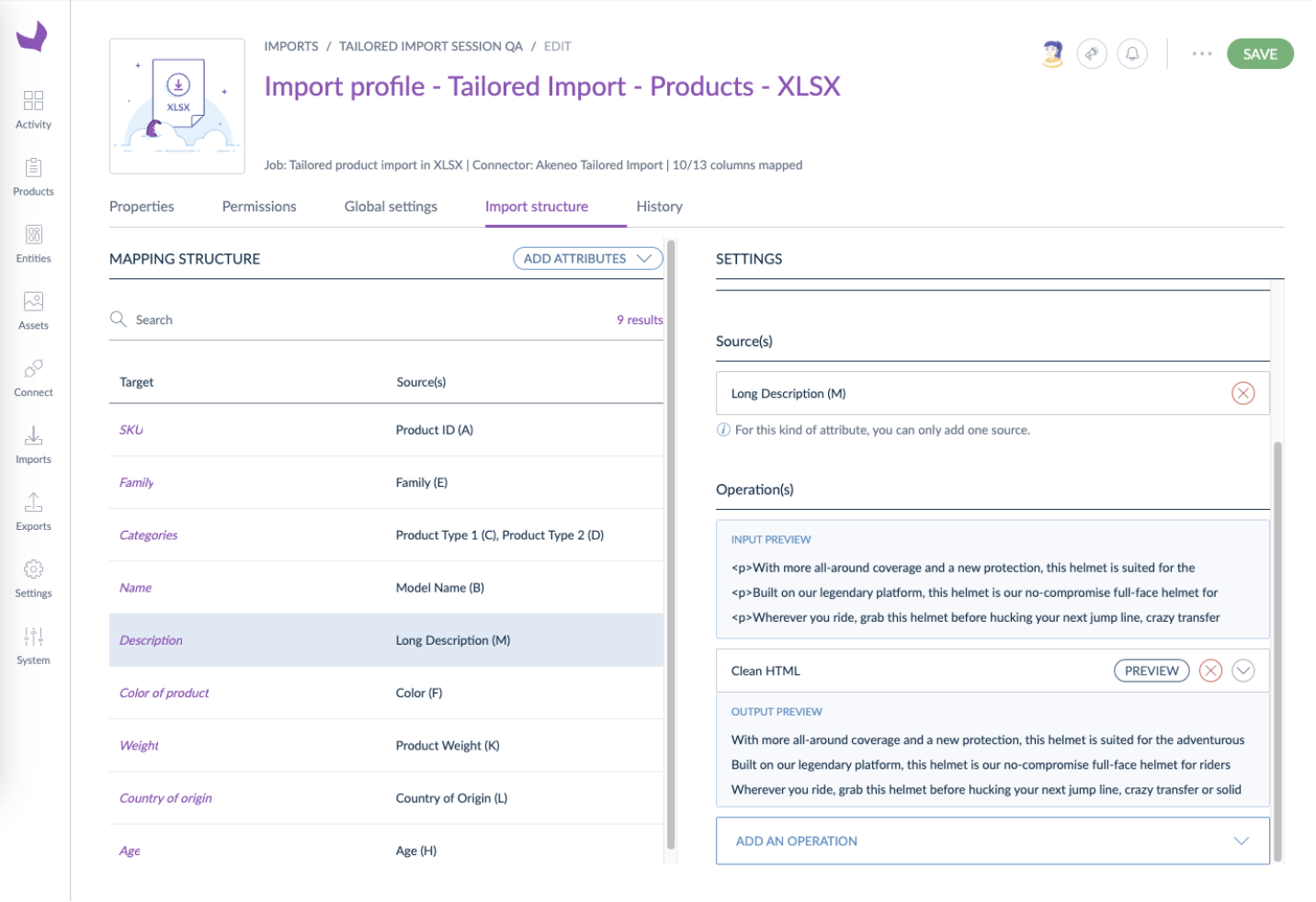Akeneo PIM Flexibility V7 is officially here, and offers some of our most popular Serenity features to Flexibility users. Discover everything this release has to offer, and how you can take full advantage of these features to develop and execute a compelling PX strategy.

Keywords
Product data that comes from suppliers and other third parties typically arrives in a format that is different from your desired file structure. It is a time-consuming, tedious process to reformat this data before importing it into Akeneo PIM.
Tailored Imports allows users to easily customize your product import structure by mapping data to your Akeneo PIM sources. And the best part? You only need to define the format once; each following time you upload any file with the same structure but with different product values, Tailored Imports will automatically map the data for easy and fast import into Akeneo PIM.
In addition, Tailored Imports provides capabilities to transform the data you are importing with options to clean HTML tags, replace family information, concatenate sources, and more.
Tailored Imports is now available for our Flexibility Enterprise Edition customers – you can learn more in our Help Center.

A common pain point for our users is the time spent manually importing and exporting product data to and from the Akeneo PIM. These activities typically happen multiple times a day, but it is time-consuming to manually complete these tasks and they distract team members from focusing on higher-value product enrichment tasks.
Now, our Flexibility Enterprise Editions customers can streamline these tasks by using automation to schedule import and export jobs between Akeneo PIM and Amazon S3, Microsoft Azure, Google Cloud Storage, or any remote SFTP storage server.
Read more about how to automate your import and export jobs.

A key piece of product information is the product identifier that is assigned when a product is created. This identifier can be used to search for a specific product, update one or more products, and synchronize product data with other systems.
In Akeneo PIM, the SKU attribute has always been assigned as the product identifier, by default, but not all customers want to use the SKU attribute as their product identifier and some need to work with multiple identifier types.
To help support this use case, we’ve introduced a new technical product identifier, the Universal Unique Identifier (UUID), which is automatically assigned to every product when it is created in Akeneo PIM. The UUID is a unique and unchangeable value, so no matter if you change the SKU or use other product identifiers such as EAN or GTIN, you will always have a consistent, universal identifier for the product.
Now that the UUID is in place, the SKU attribute is now optional when creating a product in Akeneo PIM. The SKU attribute may be removed from a family so that it will no longer appear on the product creation screen and the product edit form.
And to support better data governance, the UUID can be included in export and import files, making it easier to update product information in the future. New API endpoints are available to support updating products based on UUIDs; simply use our new API endpoints to take advantage of this option. The benefit of making this change is that you will be able to identify products even when they do not have a SKU, and you’ll be able to follow and identify products even if the SKU changes over time.
Learn more about working with product identifiers
This is just a few of the new capabilities available in Akeneo PIM Flexibility V7, but you can check out the full list here. Please reach out to your Customer Success Manager to learn more about upgrading to our newest version.
If you’d like to gain immediate access to new features as they are released and be relieved of the maintenance and hosting responsibilities for our Community Edition and managed service versions, have a look at our Akeneo PIM SaaS Edition.

2024 has been a year to remember for Akeneo. For the third day of PXMas, we’re sharing the stories behind just a few of the prestigious awards...
Read more
The traditional methods that brands and retailers have been using to win customer's attention on the physical shelf for decades won't always...
Read more
Discover how an evolving fashion retailer embraced change by letting go of their old practices to adopt a new approach with Akeneo’s PIM. Facing...
Read more